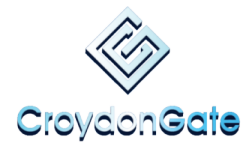10 Signs That Your Sales Prospect Will Not Buy From You
It is hard work generating sales leads. So, it can be hard to let go of a prospect when you have already put so much work into nurturing them. However, as every experienced salesperson knows, it is also a waste of time pursuing sales prospects that have no intention of buying.
You can ask all the qualifying questions you like, but some people will give you the right answers and still never buy. So, you need to be able to spot the signs that the person you are talking to is wasting your time. Here are ten warning signs that you are working hard to close a lead that will never close.
1. No Time to Talk
If you tell a prospect that you will need an hour for your sales presentation, and they give you ten minutes, then that is a big red flag. If someone wants to buy something, they will be perfectly happy to spend some time making sure that the product they buy is right for them.
Being unwilling to spare you any time could be a sign that you are being used to make up the numbers. Your lead may have already decided on buying another product. Still, they want to be able to demonstrate that they did look at other options as well.
2. You are Not Talking to the Decision Maker
You can spend as much time as you like talking to the monkey, but if the organ grinder says no, you will not get a sale. Whether it is a business to business sale or a consumer sale, you must get to see the relevant stakeholders and the decision-maker if you want to close a deal.
If your prospect refuses to introduce you to the decision-makers, it could be a sign that your product is not a good fit. At best, it will mean that you will have to start the sales process over again once you have been introduced to the right people.
3. The Prospect is Not Comparing Like with Like
When people are serious about buying something, they will have a price in mind, and they will be looking at products with similar features. Someone serious about buying a Lamborghini, for example, is not likely to be also looking at a Toyota Yaris.
The like for like comparison red flag works both ways. If your product is way more sophisticated than other products in the running, then it will likely be too expensive for the prospect. If your product is significantly cheaper than the other products, then your offering may not meet the needs of the lead.
4. There is No Urgency
Nurturing long term prospects can work, but it will take up a lot of your time, and there will be no guarantee that the lead will buy. If a person has no timescale in mind to make the purchase, then there is no urgency to come to a decision.
Buyers with no time scale may not be buyers at all. Likely they are merely researching the market, or it might be that they enjoy window shopping. Either way, if a prospect has no urgent need to buy your product, it is unlikely that you will be able to create any urgency for them.
5. Asking for a Price Reduction Too Early
There is an element of negotiation involved with almost every type of sale. However, if someone asks for a significant price reduction before they ask anything else, that is a sign that they do not have the budget to buy your product.
A serious buyer would first want to know what the benefits of your product are. Then, they would compare the benefits of your product with other products of a comparable price. Once they decided that your product will meet their needs, that is when they would begin to negotiate with you on price.
6. There is No Real Need to Buy
People only buy things that they need. People buy new homes because they want more space, or they must move to another area for their work. Businesses purchase new computer hardware because their existing equipment is outdated or unable to cope with the demands of the operation.
The need to buy might be practical, or it could be desire, but there will always be a reason why a person wants to purchase any product. If you cannot put your finger on why a prospect wants to buy your product, then you could be wasting your time.
7. The Product is Not Right for the Prospect
It is not the salesperson’s place to say who can buy their product and who cannot. Even so, there are times when a mismatch between prospect and product will be a barrier to closing the sale.
An example of this type of mismatch would be a small business owner inquiring about buying a top-end enterprise resource planning (ERP) software application. The price of the software in this example would not be the only issue. The software would also be overcomplicated for a small business. If you sell any product that is not fit for the purpose it was bought for, then you will wind up with a disgruntled customer on your hands.
8. The Prospect is Not Working with You
If a prospect wants to buy your product, then they will work with you to ensure that your product is a good fit for them. A serious buyer will work with you because they want the same outcome as you.
If you gave someone some customer references to contact, for example, the prospect would talk to those customers. If you left your product with a lead for a trial period, you would expect that person to have tested the product. If your prospect is not prepared to work with you through the sales process, then they are probably not serious about buying your product.
9. It All Goes Quiet
When a prospect stops returning your calls, then that is a sign that the deal has gone cold. It could be that the person you have been talking to has a crisis to deal with, or it could be that they are unwell. But, if the lack of engagement continues and none of the other stakeholders will talk to you, then it is probably time to draw a line through that lead.
10. Too Many Hoops to Jump Through
The final sign that a prospect is never going to buy from you is asking you to jump through too many hoops. If you have demonstrated that your product will more than meet the needs of a buyer, and then that person starts asking for more, you could be on a slippery slope to nowhere. If you are not careful, you could soon be saying that your product can do things that it cannot merely to prove the prospect wrong.
If a prospect seems determined to prove that your product is not up to scratch, walk away. Even if you do get this type of person to the finishing line, they will still want more, and they will likely become an over-demanding customer.
Conclusion
The above warning signs will help you identify the time-wasters. However, how hard you qualify your sales prospects will depend on how many leads you have in your pipeline. Even so, if you do not have any real hot leads to work with, you would be better off spending your time creating new leads than wasting your time on someone who will never buy.






